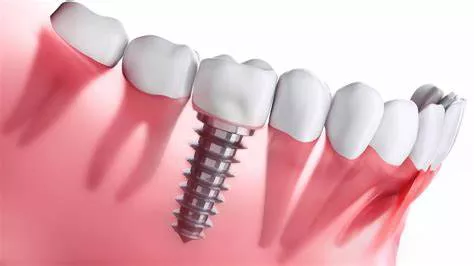Mini dental implants (MDIs) have gained popularity as a less invasive alternative to traditional dental implants. They are smaller in diameter and are often used to stabilize dentures or replace missing teeth in narrow spaces where traditional implants may not fit. However, there is a debate among dental professionals and patients about the safety and efficacy of mini dental implants. In this article, we will delve into the topic of mini dental implants’ safety to provide a comprehensive understanding of their benefits, risks, and suitability for patients.
Understanding Mini Dental Implants
Before discussing their safety, let’s understand what mini dental implants are and how they differ from conventional implants. Mini dental implants are typically 1.8 to 3 millimeters in diameter, whereas traditional implants range from 3.5 to 6 millimeters. This size difference makes MDIs suitable for areas with limited space or bone density.
MDIs consist of a titanium post, similar to regular implants, which is inserted into the jawbone. They also have a ball-shaped attachment that protrudes above the gum line. This attachment allows dentures or other dental prosthetics to snap onto the implants, providing stability and support.
see also: who should not get dental implants
Advantages of Mini Dental Implants
Less Invasive Procedure: One of the primary advantages of mini dental implants is that they require less invasive surgery compared to traditional implants. The smaller size means less drilling and often eliminates the need for bone grafting in patients with insufficient bone volume.
Faster Recovery: Due to their minimally invasive nature, patients generally experience faster recovery times after mini dental implant placement. This can be beneficial for individuals seeking quick restoration of their dental function and aesthetics.
Cost-Effective: Mini dental implants are often more cost-effective than traditional implants, making them a viable option for patients on a budget who still desire a stable tooth replacement solution.
Suitable for Narrow Spaces: The smaller diameter of MDIs makes them suitable for narrow spaces where placing a conventional implant may be challenging or impossible.
Are Mini Dental Implants Safe?
While mini dental implants offer several advantages, it’s essential to consider their safety aspects before undergoing treatment.
Bone Integration: One concern with mini implants is their ability to integrate successfully with the surrounding bone.
Some studies suggest that MDIs may have a higher failure rate or lower long-term success compared to traditional implants.
However, advancements in implant design and techniques have improved their integration and durability over time.
Risk of Fracture: Due to their smaller size, mini dental implants may be more prone to fracture under excessive force or pressure. This risk is higher in individuals with bruxism (teeth grinding) or those who engage in habits that exert significant stress on the implants.
Limited Versatility: Mini dental implants may not be suitable for all cases, especially complex restorations or situations requiring extensive bone support. Dentists carefully evaluate each patient’s oral health and treatment needs to determine the most appropriate implant type.
Maintenance Requirements: Like traditional implants, mini dental implants require proper oral hygiene and regular dental check-ups to ensure their longevity and prevent complications such as peri-implantitis (inflammation around the implant).
Who Should Consider Mini Dental Implants?
While mini dental implants offer benefits such as reduced invasiveness and cost-effectiveness, they may not be suitable for everyone. Patients with the following conditions or considerations should discuss their options with a qualified dental professional:
Limited Bone Volume: Mini implants may be suitable for individuals with limited bone volume, but severe bone loss may still necessitate alternative treatments or bone grafting procedures.
Stability for Dentures: Patients seeking improved stability for removable dentures may benefit from mini dental implants, especially in cases where traditional implants are not feasible.
Financial Constraints: MDIs can be a more affordable option for tooth replacement, making them appealing to patients with budgetary limitations.
Immediate Restoration: In some cases, mini dental implants allow for immediate placement and restoration, providing patients with functional teeth shortly after the procedure.
Conclusion
In conclusion, mini dental implants offer a less invasive and cost-effective alternative for stabilizing dentures and replacing missing teeth in suitable cases. While they have advantages such as faster recovery and reduced surgical complexity, patients should weigh the safety considerations and consult with their dentist to determine the most appropriate treatment plan. With advancements in dental technology and techniques, mini dental implants continue to evolve as a viable option for restoring dental function and aesthetics.

